If you are thinking of hiring a private educational consultant to help you and your child pick the best course of action for them, then you must be a busy person so I will answer you quickly. The answer is: yes, but.
But is for: beware of the cost.
So what value does an independent educational consultant have and do you have other options? (Again, the short answer is: yes, you do.)
An educational consultant can (and should) offer a personalized service that allows parents and students to understand their child’s particular talents and strengths and help the latter define their needs in terms of education. They can offer advice on differing educational systems (specifically in the case of international students), programs, options and, in many cases, career planning.
They can (and should) differ and tailor their approach based on the needs and aspirations of each student. They can also act as a translator between parent and student when they (often) misunderstand and miscommunicate (with) each other. The ones who know how to write can offer valuable insights on the essays. The ones with a keen eye can read between the lines and the ones with a discerning ear can hear the contradictions.
Consultants can also save you a lot of time searching for information that they already have as well as have recourse to professional networks that they often belong to. They can, and should, provide support for your family during this sometimes stressful process. Some also help with the visa process for international students and finding accommodation.
Yes, this comes at a price. The question is: how much?
The Cost of Hiring an Educational Consultant
Educational consultants offer a range of prices, often depending on their experience, the depth of service provided, and the region they operate in. It’s not unusual for consultants to charge a premium for comprehensive packages that cover everything from school selection to application submission. However, while some may offer tiered pricing to cater to different budgets, it’s essential to ensure that the cost aligns with the value provided.
What Other Options Do You Have?
Agents: Agents often work on behalf of educational institutions and mostly offer their services for free because they receive a commission from the school for each student they recruit. They can guide the application process, but their advice will be biased towards the institutions they represent. You can ask the university directly if they work with an agent or you can check with the big agencies which institutions they represent. Most top-tier universities do not work with agents (they don’t need to) but many, especially those looking to recruit more international students, will. Beware only the agent masquerading as an independent educational consultant.
School Counselors: School counselors are a free resource that can offer guidance based on a wealth of experience with past students. They might not have the same level of personalized service due to their workload but can provide valuable insights. That said, some schools may not have a dedicated department and even if they did, not all of them are created equal. Beware: the school consultant who also moonlights as a private consultant.
Direct Admissions Platforms: These platforms allow students to apply directly to programs and may include built-in tools to compare different options. They offer a more hands-on approach for the student and can reduce or eliminate the need for an intermediary. They are becoming more popular and, in my opinion, will attract more adherents in the future. It may well be worth your time trying to find out more about them. Beware: these platforms are still nascent and for now, are probably best as a second, or last recourse.
ChatGPT: I don’t do anything without ChatGPT anymore. In fact, I asked it to finish this article when I got stuck. Artificial intelligence platforms like ChatGPT can provide instant, free advice on a range of topics, including education pathways. While not personalized, they can offer an excellent starting point for research and answer specific questions. Beware: also a developing technology. Sometimes makes up options for courses that do not actually exist.
So do you or don’t you (hire a consultant)?
I know you’ve come this far but I will still give you a short answer. Yes, please do. A consultant can make your life more pleasant in myriad ways by taking pressure off you and your child. You can be the loving parent while someone else works through the grind. An educational consultant can indeed offer invaluable assistance, navigating you through the maze of modern education. Their personalized touch, understanding of intricate systems, and ability to mediate between parents and students are unmatched.
However, before you commit, take advantage of the free initial meeting that many consultants offer and see if you are the right fit for each other. An ethical consultant should tell you what they can, and cannot offer, and what they are willing, or unwilling to do. As the process unfolds, encourage your child to take the lead. After all, this journey is theirs, and the skills they develop in researching, applying, and making decisions will serve them well beyond their educational years. Consultants should empower students, not overshadow them. With or without a consultant, students should emerge from this process more knowledgeable, confident, and ready to take on the world of higher education (and beyond).
It’s also essential to be financially prudent; the cost of a consultant should be an investment in the student’s future, not a burden.



